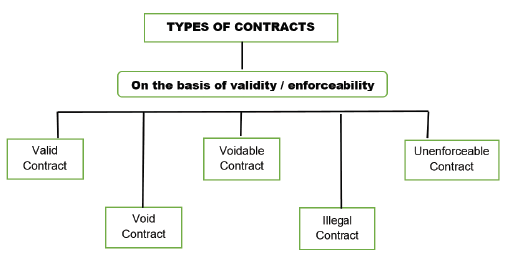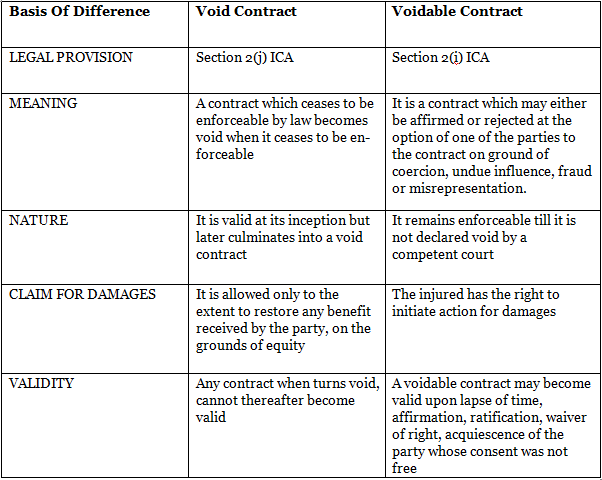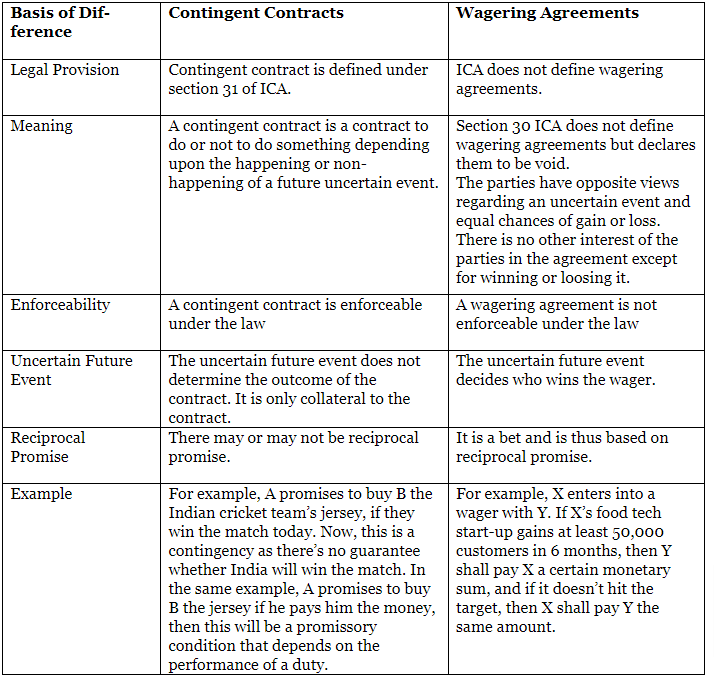Law of Contract Chapter Notes | Legal Studies for Class 12 - Humanities/Arts PDF Download
Introduction to Contracts
Contracts play a crucial role in commercial law because they are the foundation of most commercial transactions. Every business activity, whether it's buying groceries, booking a cab, dining at a restaurant, paying for internet services, or shopping for clothes, involves an agreement or a contract. These everyday activities reflect the constant presence of contracts in our lives.
When people engage in activities like buying and selling goods or exchanging services, they are essentially entering into contracts. These contracts are necessary to establish the rights, obligations, and liabilities of the parties involved in the transaction. Without a contract, it would be unclear what each party is expected to do, and what would happen if things go wrong.
In India, the law that governs contracts is the Indian Contract Act. This Act sets out the rules and principles that guide the formation and enforcement of contracts in the country.

Formation of Contract
What is a Contract?
- A contract, according to the Indian Contract Act, 1872 (ICA), is an agreement that can be enforced by law. Not all agreements are contracts; they must meet certain criteria.
Key Elements of a Valid Agreement
- Offer and Acceptance: An agreement arises from a proposal or offer made by one party and its acceptance by another.
- Competent Parties: The parties involved must be capable of entering into a contract.
- Lawful Consideration and Object: The purpose and consideration of the agreement must be lawful.
- Free Consent: Consent must be given freely, without coercion, undue influence, fraud, misrepresentation, or mistake.
- Not Void by Law: The agreement should not be one that is declared void by law at the time of its formation.
Relationship between Contracts and Agreements
- All contracts are enforceable agreements, but not all agreements are contracts. For example, an agreement lacking lawful consideration or object is not enforceable.
- This leads to the generalization: “All contracts are agreements, but not all agreements are contracts.”
Intention to Contract
- Balfour v. Balfour (1919). A case where a husband promised to send money to his wife while she was in England for medical reasons. The court ruled that their agreement was not a contract because there was no intention to create a legal relationship.
- Key Point. Contracts require a legal intention, while agreements without such intention are not legally binding.
- Offer/Proposal and Acceptance
- Offer/Proposal: The initial step in forming a contract where one party expresses their willingness to do or not do something to another party. The person making the offer is called the offeror, and the person receiving it is the offeree. For example, when A offers to sell his cottage to B for Rs. 5 lakhs, A is making an offer.
- Acceptance: When the offeree agrees to the offer, it becomes an agreement. Acceptance can be communicated through words or actions, such as saying "yes" or clicking "I agree" on a website. For instance, when B accepts A's offer to buy the cottage, it constitutes acceptance.
- Agreement: The combination of offer and acceptance, creating a legally binding agreement. For example, A's offer to sell the cottage to B, when accepted, becomes an agreement.
- Validity: Both offer and acceptance must be clear and certain for a contract to be valid. Communication of offer and acceptance, even electronically, is essential. An offer can be revoked before acceptance, making it invalid.
- General Offer: An offer made to the public at large, where acceptance is not required to be communicated. For instance, in the case of Carlill v. Carbolic Smoke Ball Co., the company offered a £100 reward to anyone who got influenza after using their smoke ball medicine, which was upheld by the court as a valid general offer.
General Offer
- Carlill v. Carbolic Smoke Ball Co. (1893). A case involving a company that advertised a reward for anyone who contracted influenza after using their smoke ball medicine for fifteen days. Mrs. Carlill used the product as directed and fell ill, claiming the £100 reward.
- Company’s Defense: The company argued that there was no intention to create a legal relationship, the advertisement was not an offer to individuals, acceptance was not communicated, and therefore no binding contract existed.
- Court’s Ruling: The court ruled in favor of Mrs. Carlill, stating that the £1000 deposit in the bank demonstrated the company’s genuine intention to enter into a legal relationship with anyone accepting the offer.
- General Offer Validity: The court established that an offer could be made to the public at large, and acceptance did not need to be communicated. Fulfilling the offer’s conditions constituted acceptance and created a contract.
Consideration
Consideration is a crucial element in a contract. Without consideration, a contract is not valid. Consideration refers to 'something in return' for the offer and can take the form of an act or forbearance.
Generally, an agreement without consideration is void and unenforceable by law because it involves one party receiving something from the other without giving anything in return. There must be mutual consideration, meaning each party must give and take.
However, there are exceptions to this rule, such as a written and registered agreement made out of natural love, which is valid even without consideration. Consideration does not need to be adequate but should be real. It can be past, present, or future but must not be illegal, immoral, or against public policy.
- Illustration 1: In a case where A offers to sell his car to B for ₹50,000, A's consideration is the car, while B's consideration is the ₹50,000.
- Illustration 2: promises to give his son B ₹1,000 out of natural love and affection, and this promise is valid even without consideration if it is in writing and registered.
In the Indian case of Durga Prasad V. Baldeo (1880), the plaintiff built shops at the request of the District Collector and rented them to the defendant, who promised to pay the plaintiff a 5% commission on sales. The court ruled that there was no valid contract for the commission because the construction was done at the Collector's request, not the defendant's.
Capacity to Contract
- For a contract to be valid under Section 10 of the Indian Contract Act (ICA), it is essential that the parties involved are competent to contract.
- This section outlines the individuals who are not considered competent to contract.
- Minor. Individuals who are below 18 years of age are not legally competent to enter into a contract.
- Persons with Unsound Mind. Individuals who are mentally incapacitated or lack the mental capacity to understand the terms and consequences of a contract are not competent to contract.
- Persons Disqualified by Law. Certain individuals are disqualified from entering into a contract by law. This includes alien enemies, foreign sovereigns, and other individuals specified by law.
Who is a Minor under Indian Law?
- The Indian Majority Act originally set the age of majority at 18 years, except in cases where a court-appointed guardian was involved, in which case it was 21 years.
- However, an amendment to the Act revised the age of majority to 18 years in all cases.
Example
- In a scenario where A, a major, offers to sell his coat to B, a minor, for ₹3,000/- and B accepts the offer and pays the amount, A may later claim that the contract is void because B is a minor.
- However, in this case, the contract is enforceable because it is beneficial to the minor, and the minor has fulfilled his part of the obligation.
Interesting Facts
- A minor is considered incompetent to contract because he is below 18 years of age.
- The Indian Contract Act does not explicitly state whether an agreement made by a minor is void or voidable.
- Courts have analyzed the nature of a minor's agreement based on the specific facts and circumstances of each case, taking into account principles of equity and natural justice.
- Initially, the controversy was resolved by the Privy Council in the case of Mohori Bibee v Dharmodas Ghose, where it was held that an agreement by a minor is void ab initio.
- In another case, Kalus Mittelbachert v East India Hotels Ltd., a co-pilot of Lufthansa who sustained serious injuries while staying at Hotel Oberoi in New Delhi was awarded compensation despite not having a direct contract with the hotel.
Consent
Consent is a crucial factor when entering into a contract. It refers to the agreement between two parties on the same terms and in the same sense, known as consensus ad idem (Section 13). However, consent must be free and not obtained through coercion, undue influence, misrepresentation, fraud, or mistake. If consent is obtained through any of these means, it is not considered free and becomes voidable at the option of the aggrieved party.
For example, if A threatens to kill B unless he sells his house to A, B's consent is not free. B can later void the contract on the grounds that he was compelled to agree to the sale under duress.
Types of Contracts/ Agreements
There are circumstances where an agreement may initially form a contract, but it can later become unenforceable due to changes in essential contract conditions, rendering it void at the discretion of either party. Additionally, if the consent for the agreement is not freely given, the contract is considered voidable. While the Indian Contract Act does not explicitly define the validity or enforceability of a contract, various court judgments have established criteria for determining enforceability based on validity. Below are explanations of some important valid and enforceable contracts.
(a) Void and Voidable Contracts
(b) Contingent and Wagering Contracts

(c) Illegal / Unlawful Agreements
- According to section 10 of the Indian Contract Act (ICA), a contract must have a lawful consideration and lawful object. If either the consideration or the object is prohibited by law, the contract becomes illegal.
- Illegal contracts are void from the beginning and cannot be enforced under the law. For example, agreements for illegal activities such as drug trafficking or human trafficking are void.
- However, if the object or consideration of the contract becomes illegal after the contract is formed, it can become void. For instance, if a contract for the sale of a car becomes void because the car is stolen after the contract is signed, it becomes void.
- Example of Illegal Agreements:
Cheating Agreement: enters into an agreement with B to share profits by falsely assuring people of job placements in Singapore. This agreement involves cheating, which is illegal, making the contract void.
Penalty Agreement: agrees to pay B Rs 1,000 as penalty if his minor daughter is not given in marriage to A. This agreement is opposed to public policy and is not enforceable under the law.
Discharge of Contract
A contract is established when both parties agree to certain obligations. When these obligations are fulfilled, the contract comes to an end, and this is referred to as "discharge." Discharge signifies the termination of the contractual relationship between the parties involved.
There are several ways in which a contract can be discharged:
- Discharge by Performance
- Discharge by Agreement or Consent
- Discharge by Impossibility of Performance
- Discharge by Lapse of Time
- Discharge by Operation of Law
- Discharge by Breach of Contract
(a) Discharge by Performance
When the parties involved in a contract fulfill their obligations and promises, the contract is discharged by performance. For example, if A offers to sell his dining set to B for Rs 10,000, and B pays the amount, leading to A delivering the dining set, the contract is discharged by performance as both parties have met their commitments.
(b) Discharge by Agreement or Consent
Discharge by Agreement or Consent occurs when parties to a contract do not fulfill their obligations either partially or completely. This can happen through novation, rescission, alteration, merger, waiver, or remission.
- Novation: Novation involves substituting a new contract for an old one. For instance, if A owes B, and B owes C, they may mutually agree to cancel B's debt to C and have C accept A as his debtor, creating a new contract.
- Rescission: Rescission refers to the cancellation of certain or all terms of a contract. For example, if A and B agree on the sale of machine parts but later change some terms before the agreement concludes, those terms are rescinded.
- Remission: Remission involves accepting a promise but not on all the specified terms. For instance, if A owes B Rs 5,000, and B accepts Rs 2,000 as full payment, the old debt is discharged but with lesser fulfillment.
- Merger: Merger occurs when terms of a contract are merged into another contract with the consent of the parties. For instance, if A contracts B for 50 bags of wheat and later realizes the need for 10 bags of mixed pulses, they can merge the two contracts into one for both items.
(c) Discharge by Impossibility of Performance
Impossibility of Performance can occur with or without the knowledge of the parties involved in the contract. A contract may become unenforceable under the law due to the impossibility of performance. This can happen after the parties have entered into the contract, and it is known as supervening impossibility. Supervening impossibility can occur due to various reasons such as:
- Destruction of the subject matter
- Death or incapacity of a party
- Non-existence of a state of affairs directly or indirectly affecting the contract
- Outbreak of war
- Changes or amendments in law
For example, if X agrees to sell his car to Y for Rs. 1 lakh and deliver it after two months, but X has an accident and the car gets destroyed before the delivery, the contract is discharged due to impossibility of performance as the subject matter (the car) is no longer available.
(d) Discharge by Lapse of Time
Time plays a crucial role in contracts. If a contract is not performed within the specified time and the other party does not take action within the limitation period, they lose their remedy, and the contract is discharged by lapse of time.
(e) Discharge by Operation of Law
A contract can be discharged by operation of law in instances such as:
- Death of either party
- Insolvency
- Merger of terms into another contract
- Unauthorized alteration of the agreement terms
(f) Discharge by Breach of Contract
Breach of contract refers to the failure of a party to perform their obligations under the contract. When a party fails to fulfill their part of the agreement, the contract is considered broken, and the aggrieved party is entitled to seek compensation or damages from the party who breached the contract. For example, if A agrees to supply 20 liters of oil to B on a specific date, and A fails to deliver the oil on that date, A has breached the contract. Conversely, if A delivers the oil but B refuses to accept it, B has breached the contract. In the first scenario, B is entitled to compensation from A, while in the latter scenario, A is entitled to compensation from B.
Remedies in Case of Breach
A remedy refers to the legal relief provided to ensure the enforcement of contractual rights or to offer adequate compensation for non-performance. When a contract is breached, the following remedies are available:

Specific Performance
Damages are the most common remedy for the injured party, allowing them to recover monetary compensation for losses incurred due to the breach. In India, this is covered under section 73 of the Indian Contract Act (ICA).
The purpose of a contract is to enforce the rights of the parties involved. In the event of a breach, the promisee can request the performance of specific obligations.
- Example 1: A agrees to deliver 40 bags of rice to B for Rs. 20,000 on 15th July 2022. If A delivers only 20 bags on that date, B is entitled to claim damages from A for the loss incurred due to the non-delivery of the remaining 20 bags.
- Example 2: A contracts to repair B's house in a specific manner and receives payment in advance. If A completes the repairs but not according to the contract, B has the right to recover the cost of making the repairs conform to the agreed terms.
|
98 videos|69 docs|30 tests
|
FAQs on Law of Contract Chapter Notes - Legal Studies for Class 12 - Humanities/Arts
| 1. What are the essential elements required for the formation of a contract? |  |
| 2. What is meant by 'consideration' in a contract? |  |
| 3. How can a contract be discharged? |  |
| 4. What remedies are available in case of breach of contract? |  |
| 5. What is 'capacity to contract' and why is it important? |  |
















